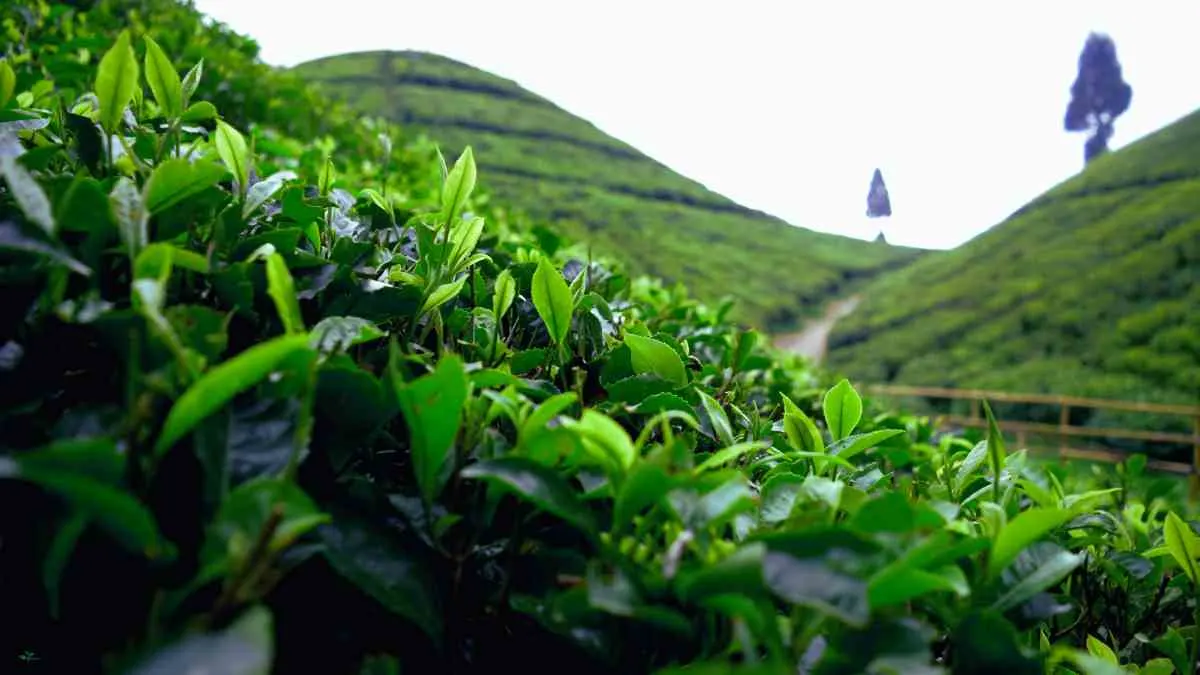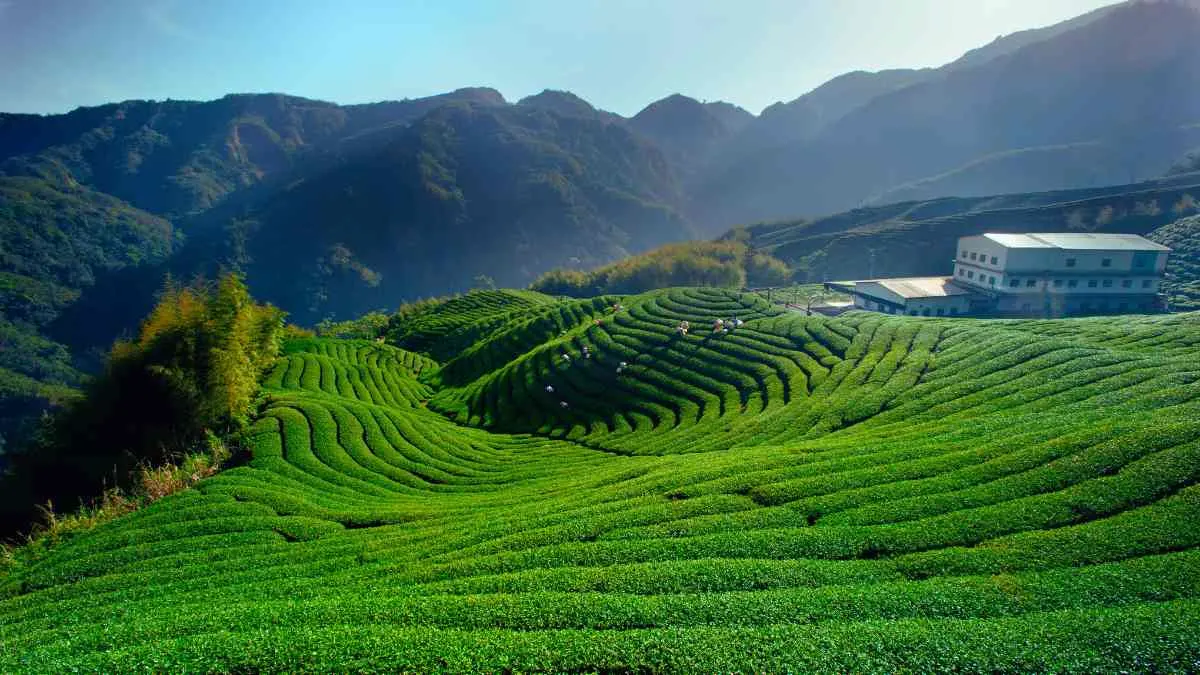Nestled in the misty mountains of Xuan’en County, Hubei Province, Wujiatai Tea Garden stands as a testament to China’s rich tea heritage.
Known for its terraced landscapes and the renowned Wujiatai Tea Garden China, the garden offers a glimpse into centuries-old tea cultivation and processing traditions.

Historical Significance
The origins of Wujiatai Tea can be traced back to the Qing Dynasty. In 1784, during the 49th year of Emperor Qianlong’s reign, a local tea farmer named Wu Changchen presented his tea to the imperial court. Impressed by its quality, the emperor bestowed upon him the plaque “Imperial Grace Bestowed,” elevating the tea’s status as a tribute offering China Tea Guru.
The tea’s unique characteristics—its sweet taste, clear green color, and roasted chestnut aroma—set it apart from other teas of the time. These qualities have been preserved through generations, maintaining the tea’s esteemed reputation.
Geographical and Climatic Conditions:
Wujiatai Tea Garden is situated at an elevation of approximately 800–1,000 meters above sea level, with an average annual temperature of 15.8°C and annual precipitation around 1,491 mm. The region’s abundant rainfall, dense vegetation, and high vegetation coverage rate of 70% create an ideal environment for tea cultivation DayDayNews.
The mist-covered hills and terraced fields not only enhance the aesthetic appeal of the area but also contribute to the unique flavor profile of the tea produced.
Tea Cultivation and Processing:
The cultivation of Wujiatai tea involves meticulous care. Tea leaves are harvested during favorable weather conditions, typically in the early morning when temperatures exceed 10°C. The processing methods have been refined over centuries, ensuring the preservation of the tea’s distinctive qualities China Tea Guru.
In 2011, the tea-making skills of Wujiatai were recognized as part of Hubei Province’s intangible cultural heritage, underscoring the importance of preserving these traditional practices.
Economic and Cultural Impact:
In recent years, Wujiatai has transformed into a significant cultural and economic hub. The village received over 624,000 tourists, with tea production value surpassing 100 million yuan and per capita income reaching 15,000 yuan People’s Daily.
The integration of tea culture with tourism has not only boosted the local economy but also promoted the preservation of traditional tea-making techniques.
Recommended: Panda Tea | A Herbal Blend for Energy and Balance
Recognition and Certifications:
Wujiatai Tribute Tea has garnered international acclaim. In 2010, it won a gold medal at the International Tea Expo in China. The tea has also secured organic certifications from the European Union and the United States, along with the highest Good Agricultural Practices (GAP) certification domestically China Tea Guru.
These accolades have positioned Wujiatai Tribute Tea as a “national calling card” in the global tea market.
Visiting Wujiatai Tea Garden:
For those interested in experiencing the beauty and culture of Wujiatai, the garden offers various attractions. Visitors can explore the terraced fields, learn about traditional tea-making processes, and enjoy the serene mountain landscapes.
The area is accessible year-round, with each season offering a unique perspective of the tea gardens. Spring brings vibrant greenery, while autumn showcases the harvest season.
FAQs:
Is Wujiatai tea expensive?
While some rare batches, like aged pu-erh, can be pricey, many everyday teas are affordable, catering to a range of budgets.
Can I buy Wujiatai tea online?
Yes, authentic Wujiatai tea can be purchased online through vendors who directly partner with the garden. Be cautious of counterfeits.
Are pesticides used in cultivation?
No, Wujiatai employs natural pest control methods, relying on beneficial garden critters to maintain ecological balance.
Last Call:
Wujiatai Tea Garden is more than just a producer of fine tea; it is a living repository of China’s rich tea culture and history. A visit to this serene locale offers not only a taste of exceptional tea but also an immersion into a tradition that has been nurtured for centuries.

